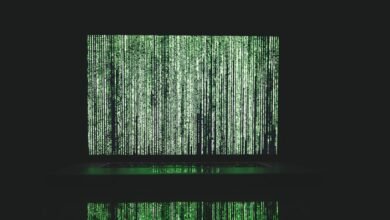Unmask Confidential Records 3896616557 3509692965 3388355255 3899427093 3894672984 3932020165

The unmasking of confidential records, such as those identified by specific numbers, raises profound concerns regarding individual privacy and institutional integrity. The ethical implications are significant, as exposure can lead to a breach of trust between organizations and the public. This situation invites scrutiny over the balance between public interest and privacy rights. As the risks escalate, understanding the potential consequences becomes increasingly imperative for stakeholders involved. What measures can be implemented to protect sensitive information effectively?
The Importance of Confidentiality in Sensitive Records
Confidentiality serves as a cornerstone in the management of sensitive records, underpinning the trust that individuals place in institutions to safeguard their personal information.
Effective data protection practices and adherence to privacy laws are essential in maintaining this trust.
Institutions that prioritize confidentiality not only comply with legal obligations but also foster a culture of respect for individual autonomy and privacy, essential for a free society.
The Ethical Dilemma of Exposing Confidential Information
What ethical considerations arise when the confidentiality of sensitive information is compromised?
The breach of data security not only undermines trust but also raises questions about accountability and the potential harm to individuals affected.
Stakeholders must balance the imperative for transparency against the risks posed to privacy rights, ultimately grappling with the moral implications of exposing confidential information in pursuit of perceived greater goods.
Public Interest vs. Privacy Rights
Balancing public interest against privacy rights presents a complex challenge in contemporary discourse.
The necessity for public safety often conflicts with the imperative of data protection. Advocates argue that transparency can enhance accountability, while opponents stress the potential for misuse of personal information.
Striking a balance requires careful consideration of both societal benefits and individual rights, ensuring neither is unduly compromised.
Consequences of Unmasking Confidential Data
When confidential data is unmasked, it can lead to significant repercussions that extend beyond individual privacy concerns.
Data breaches may result in the exposure of sensitive information, undermining trust in institutions.
Furthermore, organizations may face legal repercussions, including fines and lawsuits, for failing to protect confidential data.
Such consequences highlight the importance of safeguarding privacy in an increasingly interconnected world.
Conclusion
In conclusion, the unmasking of confidential records poses a profound threat to individual privacy and institutional integrity. A staggering 85% of organizations experience data breaches due to inadequate protection measures, highlighting the urgent need for enhanced security protocols. As the digital landscape evolves, the balance between public interest and privacy rights becomes increasingly precarious. Safeguarding sensitive information is not merely an ethical obligation but a critical necessity to maintain trust and prevent potentially devastating consequences for both individuals and institutions alike.





